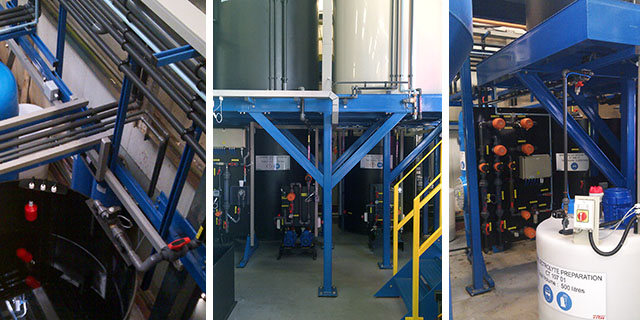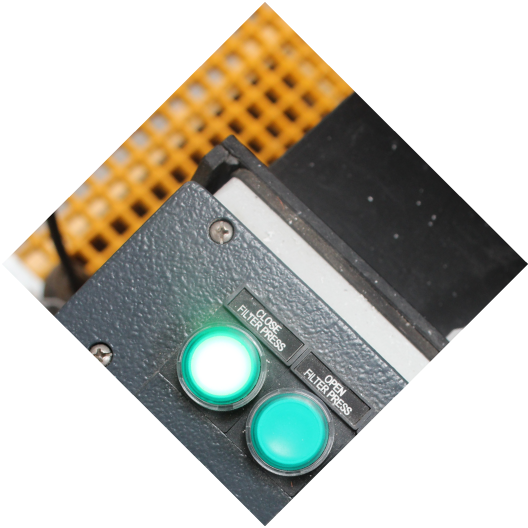Zinc Nickel Chemistry is traditionally difficult to treat : it contains a significant amount of amine based complexes. A conventional physico-chemical process would not be able to achieve values below the required 2ppm on each metal. Those metals remain in solution after a metal hydroxide precipitation.
We developed a decomplexation reactor, in order to “free up” the zinc and nickel prior to entering the traditional physico-chemical treatment. Fruit of a collaborative work with the chemical manufacturer (MacDermid Enthone), lab scale tests and protocols were developed to identify the optimum parameters.
Whilst the decomplexation is using the conventional sodium hypochlorite (other oxidising agents can be used) the operating conditions are key.
As an added process safety, the system is completed by a bivalent metals ion exchanger, with on site mono-sodium regeneration.
With a capability of 1m3/h of zinc nickel effluent and 3m3/h overall, the plant has been commissioned in March 2013. For the past 8 years TRW-ZF has enjoyed 100% compliance (at less than 1ppm on each metal) under the watchful eye of the E.A. (Environment Agency).
The effluent has demonstrated a 97%+ up-keep time since its commissioning, thanks to the quality of the TRW-ZF operators supported by our specific maintenance contract.

A very compact, yet easily maintainable installation






ZF Automotive – Pontypool, manufactures 3 million plated brake parts per year.
The process plating plants and effluent treatment plant are critical to the site production.
Puretech Environmental Ltd’s expertise in design, supply and installation of a new effluent treatment plant improved site productivity, maintained legal compliance and generated savings.
They have an excellent site maintenance program and a remote support team - supplying technical operational advice, spares and fault rectification to reduce downtime.